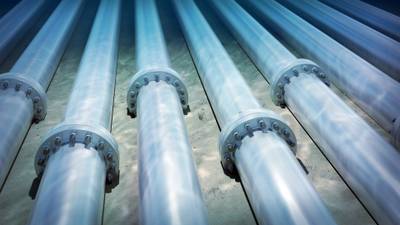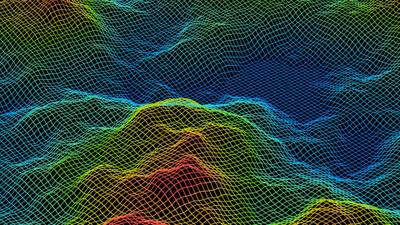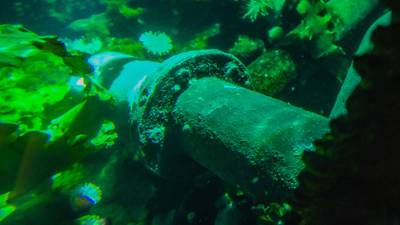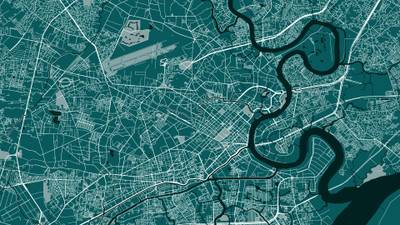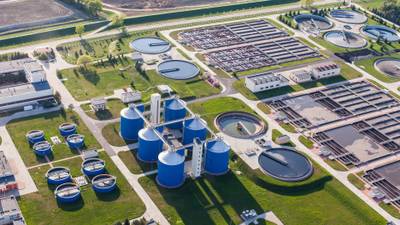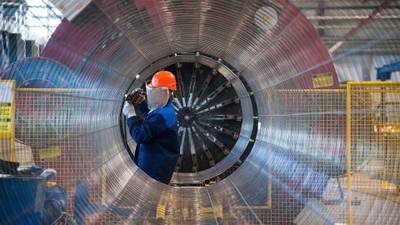Learn the fundamentals of fluid flow and how to predict reservoir performance with our Reservoir Engineering course.
Reservoir engineering plays a vital role in the offshore oil and gas industry. It allows us to assess the scale of oil and gas deposits, and maximise the economic return from safely extracting them.
Join our online Reservoir Engineering course and learn to:
- evaluate subsurface hydrocarbon reservoirs
- contribute to planning, simulations and modelling of real-world assets.
Train with experienced offshore engineers and a university at the heart of the UK energy sector. Access our expertise wherever you’re based, with no need for a visa. And enjoy flexible part-time hours that fit around full-time work.
Who is this course for?
Our online Reservoir Engineering course is ideal if you’re:
- a graduate engineer looking to convert from another engineering discipline
- a current petroleum engineer or manager looking to enhance your statistical and computational knowledge and skills.

Build credits towards a Masters degree
This online course is part of:
You can use the credits you earn on this short course towards either of these MSc qualifications.
What you’ll study
You’ll learn to use the latest computational techniques applied by industry to handle advanced reservoir engineering problems.
You’ll cover the following areas:
- Reservoir rock and fluid properties
- Fluid flow in porous media
- Reservoir drive mechanisms and material balance equations (MBEs)
- Aquifers and water influx calculations
By the end of this course, you’ll be able to...
-
Describe hydrocarbon compositions and reservoir phase behaviour.
-
Assess the economic potential of hydrocarbon reservoirs.
-
Measure pressure regimes, fluid gradients and surface tension.
-
Explain secondary oil recovery and fractional flow theory.
How you’ll study
Online learning
Our distance-learning Reservoir Engineering course is delivered flexibly online. You can study with us anywhere in the world and manage your study hours to suit you.
Your teaching
This course is taught at Masters level.
Your training is delivered through MyAberdeen, our online Virtual Learning Environment (VLE). It holds all the materials, tools and support you’ll need in your studies. Take a look around MyAberdeen.
You can access your learning materials on computer, smartphone and laptop, 24 hours a day. You’ll find a range of resources at your fingertips, including:
- online lectures
- virtual labs
- videos and slide shows
- projects
- reading materials
- discussion boards with colleagues and tutors
- the online resources of our award-winning Sir Duncan Rice Library.
Your tutors
You’ll learn from experienced engineers who have worked at high levels in industry, and experts from major companies operating in the offshore sector.
Industry input
Your course also benefits from direct industry input via an Industry Advisory Board. It constantly reviews your course content to ensure you gain the latest knowledge and are up to speed with emerging trends, technologies and career opportunities.
This course usually combines online assessment with a written exam that you attend in person at the end of term.
However, as a result of Covid-19, in-person exams will not take place until the September 2023 term at the earliest.
Until then, we’ll use alternative online assessments.
Online assessment
Online assessment will take place throughout the teaching term.
Types of assessment for this course may include:
- coursework
- online quizzes
- timed online open-book assessments.
Assessment deadlines
Your assessments will have submission deadlines, either during or at the end of the course. Your course coordinator will let you know when your assessment deadlines are, so you can plan your study time accordingly.
From September 2023 - Return of exams
We may reintroduce in-person exams for this course from the September 2023 term onwards.
If exams are reintroduced, you’ll be assessed via a mix of online assessments and a final, in-person exam. We can help you find an exam centre in your area for this exam if you are not able to attend exams on-campus in Aberdeen.
There may be a fee for sitting an exam at an external examination centre.
We’ll keep you updated as to assessment methods well in advance of any changes.
The course totals approximately 150 hours of study and assessment time. That’s around 10 – 15 hours per week.
This is an indicative guide to the time required for a typical student at this level to achieve the learning outcomes.
You can largely set your own study hours each week to cover the materials. MyAberdeen is available 24/7, so you can log in and study when it suits you.
Activities with deadlines
There will be some activities scheduled for fixed times, such as assessments with deadlines or meetings with your tutor. But otherwise, you can access and work through the course at your convenience.
Our first-class support structure will ensure that you aren’t alone in your studies. You’ll have contact with your course coordinator throughout your course. This could be by email, MyAberdeen, online call, or phone. You can use social media and discussion boards to chat with your fellow students too.
We provide a wide range of services to support you in your studies and beyond:
- Careers and Employability Service
- Disability support
- IT support
- Library support
- Student Support Service – help with finances, stress, wellbeing and non-academic issues
- Student Learning Service – study support, with advice sessions available via phone or Skype
- Aberdeen University Students’ Association (AUSA) – run by students for students
- Toolkit – clever apps and free training that can make your study life easier
Wherever you are in the world, you’ll feel part of our very special Aberdeen learning community.
Your course coordinator

Dr Yingfang Zhou
Yingfang is a Senior Lecturer in Engineering. His interests are in multiphase flow in porous media. Yingfang performs experimental, theoretical and numerical research into many aspects of flow and transport in porous systems, including pore-scale imaging, modelling and analysis of displacement processes, and large-scale simulation using simulation tools.
View Yingfang’s profileWhere this will take you
Towards a Masters
You’ll earn 15 credits at Masters level (SCQF Level 11) with this course. You can use these credits towards our:

Accredited Masters in Petroleum Engineering
Become a world-class petroleum engineer, ready to take up roles in the upstream oil and gas industry. Join our accredited online MSc in Petroleum Engineering, designed in partnership with industry.
View MSc Petroleum Engineering
Accredited Masters in Oil and Gas Engineering
Join an accredited online Masters degree delivered from the Energy Capital of Europe. Master the skills and technologies you need to pursue a career in the upstream and downstream oil and gas industry.
View MSc Oil and Gas EngineeringBuild your learning
We offer a range of specialist online Engineering and technology courses you can use to build your skills.
Many carry credits you can build up into postgraduate qualifications, including Masters degrees:
Careers
As a manager, this course will help you to collaborate and gain a deeper understanding of the technical aspects of reservoir engineering.
As an engineer, you’ll develop your knowledge of the petroleum engineering discipline, with a focus on unconventional reservoirs and complex porous media.
Your employer or professional institute may recognise this course for Continuing Professional Development (CPD). Talk to your employer or institute to find out more.

Free career support
Access our free careers service while you study.
- 1:1 appointments
- CV checks
- Interview prep
- Job opportunities
Entry requirements
Entry requirements
We welcome students from all over the world.
This course has no formal entry requirements. You do not need to provide proof of your qualifications.
But you do need to check the entry guidance above to understand the level of teaching delivered, to decide if this course is right for you.
If you do not have qualifications from the UK, check the equivalent teaching level for your country.
Visa requirements
You do not need a student visa to study online with us.
English language requirements
Teaching is delivered in English.
You do not have to provide proof of your English language skills to join this course. But we want to make sure that you can use English well enough to study successfully.
Recommended level of English
For this course, we recommend the following level of English language proficiency.
These are our Postgraduate Standard requirements, and these are minimum scores.
IELTS Academic, IELTS UKVI Academic, and IELTS Online (not IELTS Indicator or IELTS General Training)
- 6.5 overall
- 5.5 for listening, reading and speaking
- 6.0 for writing
TOEFL iBT and TOEFL iBT Home Edition
- 90 overall
- 17 for listening
- 18 for reading
- 20 for speaking
- 21 for writing
- TOEFL DI code is 0818
Cambridge English: B2 First, C1 Advanced, or C2 Proficiency
- 176 overall
- 162 for listening, reading and speaking
- 169 for writing
LanguageCert Academic/LanguageCert Academic SELT
- 70 overall
- 60 for listening, reading and speaking
- 65 for writing
LanguageCert International ESOL B2 Communicator (Written and Spoken) – Online / In-centre
- Overall High Pass
- 33 for listening, reading and speaking
- 38 for writing
Oxford ELLT Digital – English Language Level Test Online
- 7.0 overall
- 5.0 for listening, reading and speaking
- 6.0 for writing
PTE Academic (online test not accepted)
- 62 overall
- 59 for listening, reading, speaking and writing
For full information about language requirements, see our English Language Requirements page.
You will need access to:
A computer (PC, laptop or Mac) operating on either:
- Windows 10 or later
- macOS 10.15 (Catalina) or later.
Most teaching materials are smartphone- and tablet-friendly. But we recommend a proper laptop or desktop for completing assignments comfortably.
Reliable internet access
We recommend:
- a wired connection
- a minimum download speed of 2 Mbps so you can take part fully in live sessions.
Speakers or headphones
- We recommend a headset with built-in microphone and earphones if you’re likely to study in an environment with background noise.
- A webcam is optional, but you may like to use one for some interactive sessions.
Software
We’ll give you access to Office365 applications. This means you can use online versions of Microsoft Word, Excel, and PowerPoint and install these programs on up to five personal devices.
If your course requires specialist software, we’ll provide you with access to this and a licence that lasts throughout your studies.
See our detailed IT requirements for more information.
When you study with us, you can expect a first-class support structure so that you’re never alone in your studies.
But learning online does mean you have to motivate yourself and manage your own time.
Your most important commitment will be time – the time to work through, reflect on and understand your teaching materials.
Before you start a course that involves a high degree of independent study, we recommend looking at the time you will be able to devote to your studies each week:
- Be realistic
- Create a weekly schedule as a guide
If you have any questions about studying online, get in touch with our friendly team. We’re here to help.
Fee payment
Your course fee needs to be paid in full before you start your course.
We accept payment via Visa Debit, Visa Credit and Mastercard.
Exam fees
If your course features an in-person exam, you may have to pay a fee depending on where you sit your exam.
It’s free to sit exams on campus at the University of Aberdeen.
If you sit an exam at another university, exam centre or a British Council Office, they may charge you for this service. This is a fee that you pay directly to the service provider when booking your exam with them. It is not a fee that you pay to us.
Ways to save
You may be able to get help funding this course via:
- discounts – if any discounts are available for this course, they’ll appear in the section below
- employer sponsorship – we accept full and partial fee payments from sponsors.
Find out more about funding options.
Student card
All our students are entitled to a University of Aberdeen student card. This gives you access to a range of student discounts around the city and online.
This course has no formal entry requirements. You decide if it’s suitable for you.
The course is delivered at Masters level. For this course, you’d usually have at least:
- a 2:1 UK honours degree (or equivalent) in Engineering or Applied Mathematics, or
- a 2:2 UK honours degree (or equivalent) in Engineering, Applied Mathematics or Physics and two years’ relevant experience that supports this level of study, or
- a 2:1 UK honours degree (or equivalent) in Geology, Chemistry or Physics and two years’ relevant experience that supports this level of study.
Mathematical skills
This course includes significant mathematical content. Please review our mathematical skills document, which we’ve prepared to give you an indication of the level of mathematics you’ll require.
Apply for this course














